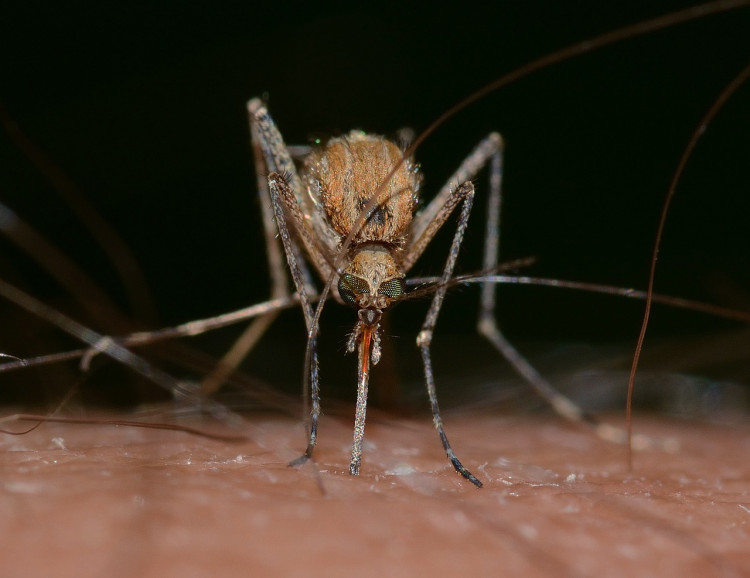Eastern equine encephalitis (EEE) virus has been detected in mosquitoes in Massachusetts for the first time in 2024, prompting health officials to raise the risk level in several communities. The Massachusetts Department of Public Health (DPH) confirmed that EEE was found in mosquito samples collected on June 30 in Carver, Plymouth County.
In response to this detection, the risk level of EEE has been elevated to moderate in the towns of Carver, Kingston, Middleborough, Plymouth, Plympton, and Wareham. "The last EEE outbreak cycle in Massachusetts occurred in 2019-2020, and since then, there have been no human cases of EEE reported in the state," noted Public Health Commissioner Dr. Robbie Goldstein.
Although no human or animal cases of EEE have been reported this year, the early detection of the virus has raised concerns. EEE is a rare but serious and potentially fatal disease that affects individuals of all ages. It is typically transmitted to humans through the bite of an infected mosquito.
Historically, EEE has had devastating impacts in Massachusetts. In 2019, there were 12 human cases of EEE, resulting in six deaths. In 2020, there were five human cases and one death. However, there were no reported cases of EEE in the state from 2021 to 2023.
In addition to the EEE findings, Massachusetts health officials also reported the detection of West Nile virus in a mosquito sample collected in Quincy, marking the first instance of the virus in the state this year. This double discovery underscores the importance of taking preventive measures against mosquito bites.
"EEE activity in Massachusetts tends to occur in outbreak cycles," stated State Epidemiologist Dr. Catherine M. Brown. "When EEE is found in mosquitoes at the start of the season, the risk may increase throughout the rest of the summer. We rely on our mosquito surveillance program to monitor for the presence of the virus to let people know when and where the risk is occurring."
EEE is considered one of the most dangerous mosquito-borne illnesses in New England, with a fatality rate of up to 50% in humans. There is no vaccine or specific treatment for EEE in humans, making preventive measures crucial. The virus can affect people of all ages, and those who survive often suffer from severe neurological complications.
Health officials urge residents and visitors in the affected areas to take precautions to avoid mosquito bites. Recommended measures include applying insect repellent, wearing long sleeves, long pants, and socks, and avoiding outdoor activities during peak mosquito hours from dusk to dawn. More information on mosquito-borne diseases and prevention tips can be found on the Massachusetts Department of Public Health's website.
The detection of EEE in early July is earlier than in previous years, raising concerns about a potential increase in the virus's spread throughout the summer. In 2023, the first EEE-positive mosquitoes were not detected until late August. The early arrival of the virus this year may lead to a prolonged period of transmission risk, as the virus spreads between mosquitoes and birds.
Mary Johnson, an independent Social Security and Medicare policy analyst, highlighted the broader implications of such public health alerts. "When these viruses are detected early, it gives us a heads-up to implement preventive measures more rigorously and educate the public on the risks," she said.
In neighboring Rhode Island, EEE has also been detected in mosquitoes this year, with positive samples reported in Tiverton and Coventry in mid-June. The presence of EEE in multiple locations in the region adds to the urgency for residents to take protective actions.
Horse owners are also advised to vaccinate their animals against EEE, as a vaccine is available for equines. Horses are highly susceptible to EEE, and vaccination is an effective measure to protect them from the virus.
As the summer progresses, Massachusetts health officials will continue to monitor mosquito populations and virus activity, providing updates and guidance to the public. The combined efforts of surveillance, public education, and preventive measures are essential to mitigating the risks posed by mosquito-borne diseases like EEE and West Nile virus.
For real-time updates and more information, residents can visit the Massachusetts Department of Public Health's Arbovirus Surveillance Information webpage or contact the DPH Division of Epidemiology.






